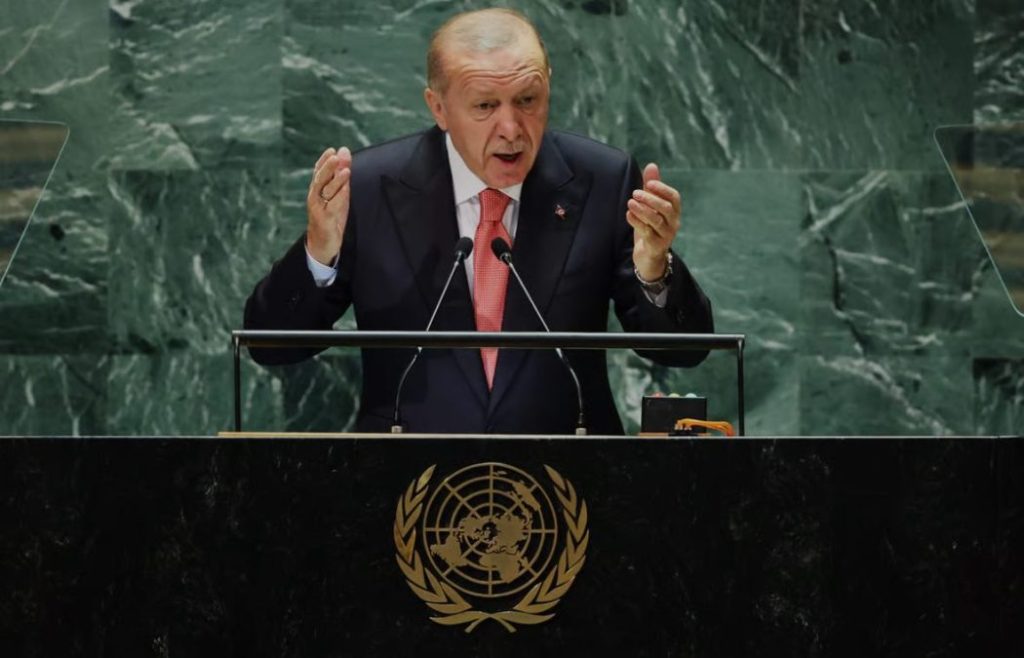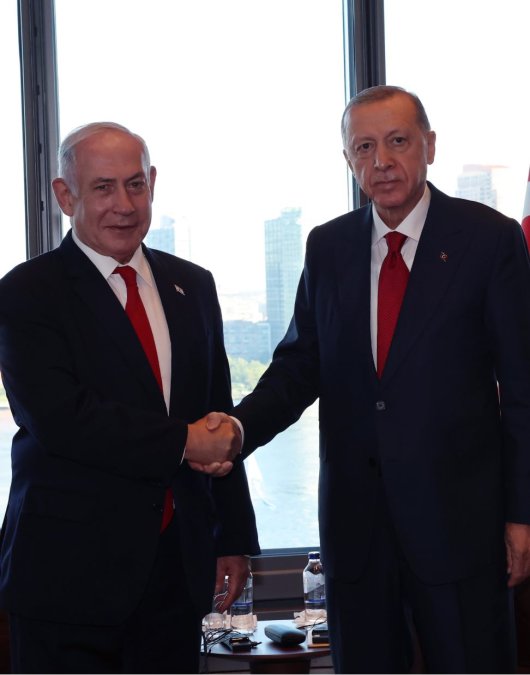Erdogan’s Outcry Against Israel, Trade with Israel
Erdogan’s Outcry Against Israel, Trade with Israel
According to the IranGate News Agency, Turkey’s foreign policy during Recep Tayyip Erdogan’s era, especially regarding the Gaza crisis and relations with Israel, is a complex example of diplomacy based on pragmatism and national interests.
While Ankara appears on the international stage with fiery speeches against Tel Aviv and presents itself as a defender of the Palestinian cause, in practice, we witness the continuation and even expansion of economic and political relations with Israel.
This report closely examines these contradictions and their implications for Turkey’s moral credibility and geopolitical standing in the region and the Islamic world.
Pragmatism in Turkey’s Foreign Policy: Erdogan’s Dual Approach to the Gaza Crisis and Relations with Israel
Understanding Turkey’s foreign policy during Recep Tayyip Erdogan’s era is almost impossible without considering the principle of pragmatism or pragmatic realism.
During more than two decades of Erdogan’s rule, the Ankara government has tried to balance Islamic idealism with geopolitical and economic requirements, but this effort has often been accompanied by evident contradictions.
From Anti-Israel Slogans to Continued Trade with Tel Aviv

Since the beginning of the humanitarian crisis in Gaza, the Turkish government, especially in official and public statements, has labeled Israel as a terrorist state and repeatedly spoken of the genocide of the Palestinian people.
Erdogan himself has repeatedly emphasized in his speeches Turkey’s support for the Palestinian nation and opposition to occupation.
However, in practice, documented and media data indicate the continuation and even expansion of Turkey’s economic and trade cooperation with Israel.
According to reports published in 2023 and 2024, at the height of Israel’s extensive military attacks on Gaza, several commercial ships daily departed from Turkish ports to the occupied territories. Items such as steel, cement, and even explosives formed a significant part of these exports—goods that undoubtedly played an undeniable role in the logistical support of Israel’s war machine.
Pragmatism at the Cost of Moral Credibility
Erdogan has also faced increasing pressures domestically. The defeat of the Justice and Development Party in the March 2024 municipal elections, especially in sensitive and port areas, clearly showed that Turkish public opinion is well aware of the duality between the government’s words and actions.
In response to these pressures, the government has at times announced the suspension of trade with Israel, but these decisions have either been temporary and short-lived or remained at the level of statements without any real change in Ankara’s economic policies.
On the other hand, Turkey’s weak reaction to Israel’s aggressions in the region, including repeated attacks on Ahmad Al-Sharaa in Damascus, who is close to Ankara, indicates that geopolitical interests have taken precedence over moral commitments and Islamic solidarity.
Double Speak in Foreign Policy: Contradictory Messages to Different Audiences
Erdogan’s foreign policy towards Israel is a prominent example of double diplomacy—a policy that attempts to satisfy both domestic and foreign audiences simultaneously with two contradictory messages. Internally and in the Islamic world, Erdogan tries to establish an anti-Zionist and pro-Palestinian image through fiery speeches.
However, on the international level, especially for Western and regional economic partners, his message is clear: Turkey remains a reliable partner in the global economic order.
This clear contradiction becomes more pronounced when Turkey adopts passive and justificatory stances in the face of suspicious activities such as arms shipments or Azerbaijan’s oil exports to Israel.
Turkish officials often evade accountability by relying on technical concepts such as neutral transit or free market policies.
Internal Tensions and Public Pressure
The increase in public protests in port cities like Iskenderun against trade with Israel has sounded the alarm for the government.
The government’s continuous disregard for these public reactions could, in the long run, deepen the gap between the government and the people.
This situation may also fuel public distrust regarding the country’s official policies on humanitarian and ethical issues.
Identity Challenge in Turkey’s Foreign Policy
Erdogan and the Justice and Development Party have always emphasized Turkey’s leadership in the Islamic world, a claim that has been severely questioned by the government’s contradictory performance in the Gaza crisis. Turkey’s extensive cooperation with Israel, at a time when many Islamic countries have reduced or halted their relations with Tel Aviv, has weakened Ankara’s moral legitimacy in the eyes of Muslim public opinion.
On the other hand, Turkey’s heavy dependence on the global economy and its vital role as a mediator in the energy chain between Azerbaijan, Israel, and Europe has severely limited Ankara’s maneuvering space in foreign policy. This dependence is such that, in critical moments, economic interests take precedence over human and political considerations.
Geopolitical Consequences of Turkey’s Pragmatism
Erdogan’s pragmatism, although it has helped secure the country’s economic and energy interests in the short term, has had serious geopolitical consequences. Turkey’s ambitious plans to expand influence in sensitive areas of West Asia and the Caucasus have practically faced regional resistance and counteractions by Israel.
Increasing cooperation between Tel Aviv and Turkey’s rival countries, such as Greece and Cyprus in the Eastern Mediterranean, as well as strategic cooperation with the Republic of Azerbaijan in the South Caucasus, has weakened Ankara’s geopolitical initiatives. Furthermore, Israel’s active military presence in Syria and repeated strikes on Turkey’s allies in that country have posed a serious challenge to Erdogan’s regional influence plans.
Long-Term Costs of Double Policies
Ultimately, what clearly emerges from Turkey’s foreign policy is the dominance of a pragmatic and calculative outlook over Ankara’s international approaches.
Although these policies have so far brought short-term economic benefits for Turkey, they have come at the cost of eroding moral credibility and weakening Turkey’s political standing in the Islamic world.
Continuing this trend may soon confront Turkey with a structural contradiction between its Islamic claims and economic and diplomatic realities. This duality will not only cast a shadow over Ankara’s international legitimacy but also put the country’s internal cohesion and public trust in policymakers under pressure.
Turkey’s foreign policy in the Erdogan era is more a reflection of a pragmatic policy that oscillates between economic interests and value-based slogans than one based on moral or ideological principles. This oscillation may sooner or later come with heavy political and geopolitical costs for Ankara.

